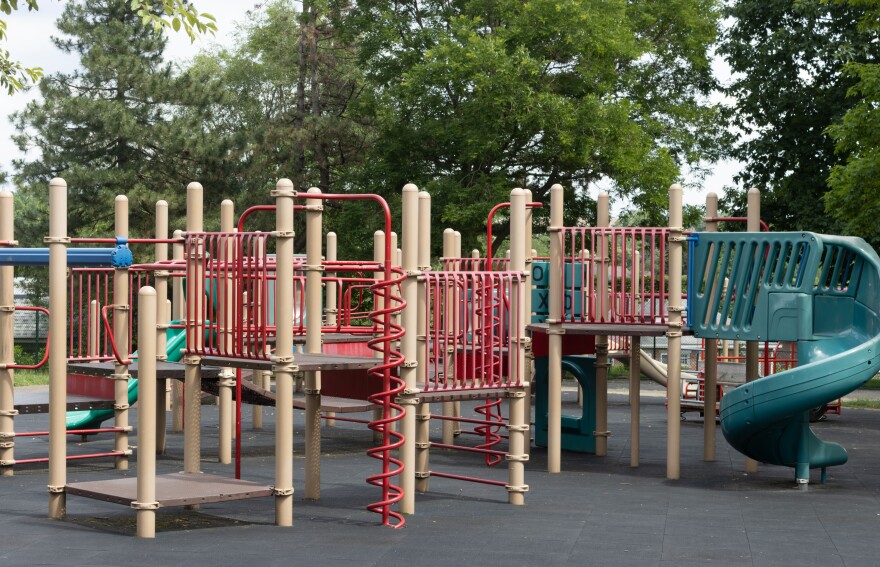On today’s program: The Pittsburgh Public Schools board voted to end the disorderly conduct code for students in 6th through 12th grades, a move Gwen’s Girls CEO Kathi Elliott says needs to be coupled with resources to keep students out of the criminal justice system; Republicans say an effort to join the Regional Greenhouse Gas Initiative will raise electricity rates, but experts say that’s not for certain; and two Pittsburgh queer community activists talk about how Pride celebrations have changed over the decades and why archiving the history of LGBTQ residents is critical.
An end to PPS’s disorderly conduct code
(0:00 - 6:39)
Pittsburgh Public Schools is getting rid of its disorderly conduct code for students in sixth grade and up. This comes after a 2019 assessment of data that found more than half of charges against Black students were for disorderly conduct.
Kathi Elliott is CEO of Gwen’s Girls, one of several organizations that signed onto public testimony advocating for the removal of this policy.
“Thankfully this is the first step in addressing some of the issues and reasons that our children are, I would say, falsely and erroneously being referred to the criminal justice system for just typical teenage behavior,” says Elliott. Some of these behaviors, she says, include disrupting class, or not following teacher directions.
“We’re not saying that these incidents do not occur, but there needs to be other resources that teachers and school administrators have to address these issues,” says Elliott.
She says removing this policy is a step toward dismantling the school-to-prison pipeline, where students of color disproportionately are introduced to the criminal justice system for misbehaving in class, and may end up incarcerated.
“A lot of the issues that may come out in the classroom don’t really get to the root cause of what’s contributing to that behavior,” says Elliott. “It’s been a historical process of not truly taking the time to understand and listen to our young people, and then provide the supports that are necessary.”
State may join Regional Greenhouse Gas Initiative, Republicans are pushing back
(6:44 - 10:53)
Pennsylvania could join something called the Regional Greenhouse Gas Initiative next year, but the Republican-led Senate is trying to block the move.
If you’ve caught any of the debate over RGGI, you’ve probably heard Republican lawmakers say the program will drive up electricity rates. So, will it?
StateImpact Pennsylvania’s Rachel McDevitt takes a look.
The history and growth of Pride celebrations in Pittsburgh
(11:02 - 22:30)
Pride month concludes today in Pittsburgh following marches, festivals, and marking the 52nd anniversary of the Stonewall Riots in New York, a landmark event in LGBTQ history.
“Certainly the number of [Pride event] attendees has grown significantly over the years, and some of that has to do with increased visibility, by holding marches Downtown, or just marching around town,” says Sue Kerr, founding editor of the Pittsburgh Lesbian Correspondents blog. “There are also more political events happening year round.”
She adds that Pittsburgh is a “parochial region,” with many little communities. It has a history of different kinds of Pride, including Pittsburgh Black Pride, which is documented to have begun 25 years ago, but Kerr says it may have existed even earlier.
Pittsburgh’s first official Pride march took place in June 1973. Billy Hileman, vice president of the Pittsburgh Federation of Teachers and long-time queer community activist, says the purpose of Pride then and now is the same.
“It’s about visibility, and it’s about inclusion and it should have an agenda that is anti-racist and a feminist agenda as part of any Pride endeavor in our community,” says Hileman. “Without that, it’s, on some levels, a failure.”
Kerr has been documenting the stories of LGBTQ community members and issues on her blog. However, she and Hileman both agree more needs to be done to collect and archive the stories of older LGBTQ community members in Pittsburgh.
The Confluence, where the news comes together, is 90.5 WESA’s daily news program. Tune in weekdays at 9 a.m. to hear newsmakers and innovators take an in-depth look at stories important to the Pittsburgh region. Find more episodes of The Confluence here or wherever you get your podcasts.







